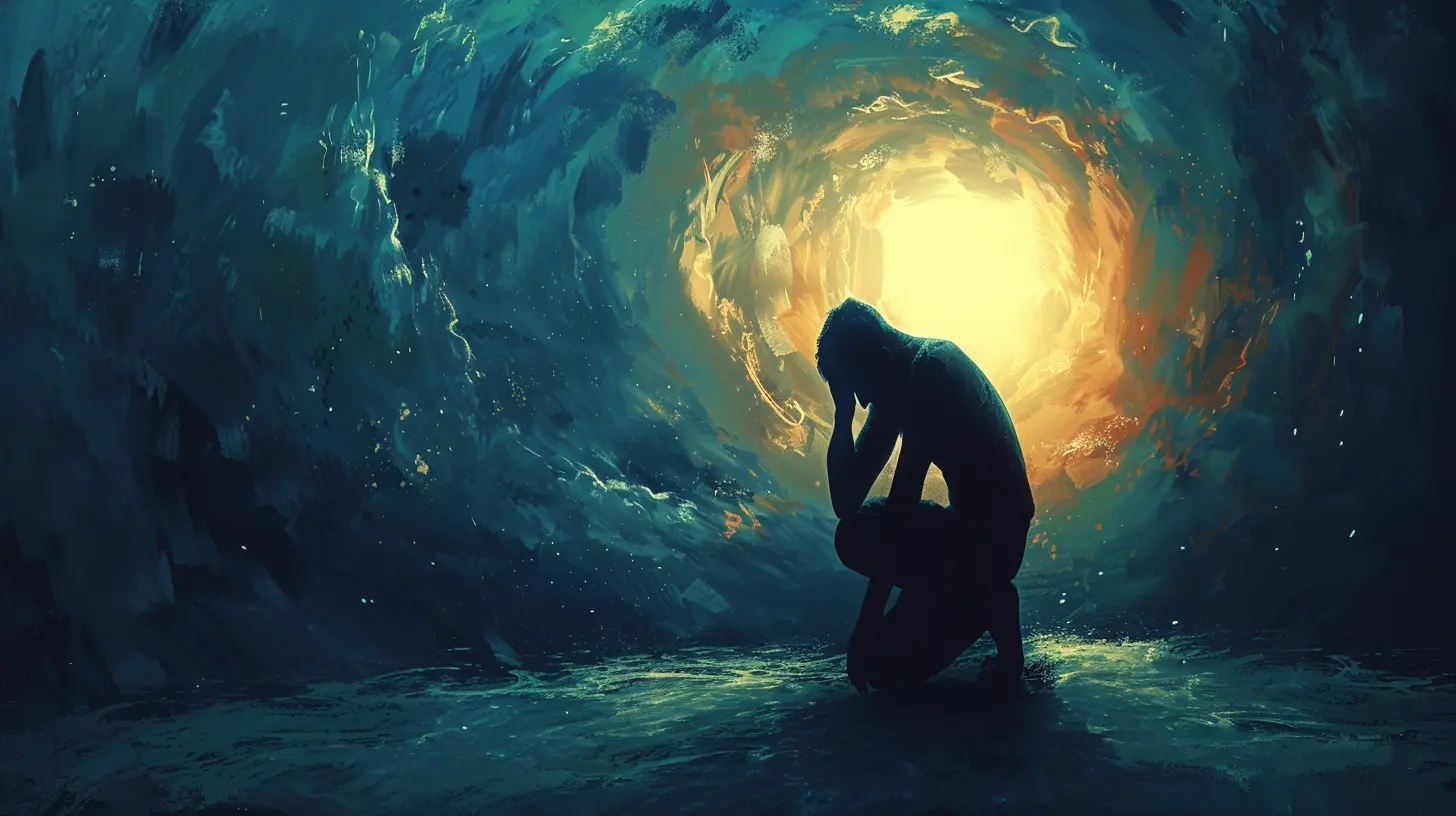Emotional Dependency and the Fear of Being Alone
31 August 2025
Let’s be real—being alone can sometimes feel like you're stuck on a deserted island with nothing but your thoughts for company. And those thoughts? They're not always the friendliest. If you've ever found yourself terrified at the idea of not being in a relationship or constantly needing someone’s reassurance to feel okay, then you’ve probably brushed shoulders with emotional dependency.
But don't worry—you’re not alone in this (pun totally intended). Emotional dependency and the fear of being alone are more common than you think, and the good news is, you can break free from this cycle. So grab your cup of tea, get cozy, and let’s chat about what emotional dependency really is, why solitude seems like such a scary monster, and how you can stand strong in your own company.
What Is Emotional Dependency?
Emotional dependency is like being on an emotional rollercoaster you didn’t sign up for. It’s that feeling where your happiness, self-worth, or peace seems glued to someone else—like you can’t function unless they’re around or giving you validation.It shows up in a bunch of sneaky ways:
- You panic when they don’t reply to a text.
- You feel empty when you’re not with them.
- You make decisions based on what they want to avoid conflict.
- You keep trying to "fix" yourself to be what you think they need.
Sound familiar? Yeah, it’s exhausting.
Emotional dependency is not just craving love—it’s surviving on it. It's needing someone else to make you feel whole, and that’s a heavy job for anyone to carry.
The Link Between Emotional Dependency and the Fear of Being Alone
Now enter the fear of being alone. These two are besties. Emotional dependency often grows from the fear of solitude—like weeds in an unkempt garden. Let's break this down a bit.When you fear being alone, your brain is basically convinced that without someone by your side, your world will collapse. So you start clinging, compromising too much, or staying in relationships that are as nourishing as a stale cracker—all because the alternative seems worse: being alone.
This fear can come from:
- Childhood experiences (not feeling emotionally safe or loved).
- Past relationships, especially if they ended badly or unexpectedly.
- Low self-esteem, making you believe you're not lovable unless someone proves otherwise.
- Movies and media, which often romanticize the idea that we need someone to “complete” us (thanks a lot, Hollywood!).
But here's the truth: you’re already a complete person. You don’t need another half—you need to recognize the whole you already are.
Why Is Being Alone So Uncomfortable?
Look, being alone isn’t always fun. No one’s saying you should high-five yourself during a thunderstorm or throw a party of one every Friday night (unless that’s your vibe—go you!). But the discomfort? That often comes from what being alone brings up.Let’s face it: without distractions, you hear all the noise in your head. Doubts, insecurities, regrets—they all show up like uninvited guests. It’s like silence holds up a mirror, and some people would rather look away.
We’re conditioned to believe that if we’re not connected to someone romantically, we’re failing at life. Spoiler alert: that’s nonsense.
Signs You're Emotionally Dependent
Worried this might be you? Don’t sweat it—awareness is step number one. Here are a few common signs you're emotionally dependent:- You constantly seek approval or reassurance from others.
- You avoid disagreements, even if it means suppressing your feelings.
- You feel anxious or panicked when you're not with your partner.
- You base your identity around the relationship.
- You're terrified of being single.
These signs aren't meant to shame you—they're just signals. Like your emotional dashboard lighting up. Time to pop the hood and see what’s going on underneath.
The Costs of Emotional Dependency
Here’s the kicker: emotional dependency doesn’t just affect your relationships—it affects your entire life.- Your identity gets blurry: You lose sight of your own needs, values, and goals.
- Your boundaries crumble: You struggle to say "no" for fear of losing someone.
- You tolerate unhealthy dynamics: Because being with someone, even if it’s toxic, feels safer than walking alone.
- Your emotional growth stalls: Because you're outsourcing your self-worth.
It’s like trying to build a house on quicksand. No matter what you do, you keep sinking.
But Wait—Isn’t Wanting Love Normal?
Absolutely! Wanting connection, love, affection—that’s all part of being human. The key difference is need vs. want.- When you're emotionally dependent, you need someone to feel okay.
- When you're emotionally healthy, you want someone, but you’re still okay flying solo.
One is survival. The other is choice.
How to Overcome Emotional Dependency (Yes, You Can!)
Okay, now for the good stuff. You’re probably thinking, “Alright, I get it. But how do I stop being emotionally dependent?” Glad you asked. Let’s break it down:1. Get to Know Yourself Again
Sometimes, emotional dependency happens because we've been focused on someone else for so long, we forget who we are.- What do you like?
- What brings you joy?
- What are your values?
- What are YOUR goals?
Take yourself on dates (yes, seriously). Try out hobbies, journal your thoughts, or just sit with yourself and listen. You might be surprised by what you find.
2. Practice Being Alone (Start Small)
You don’t have to become a hermit overnight. Start with small doses.- Take a walk by yourself without texting anyone.
- Eat at your favorite cafe solo.
- Spend a night in without Netflix as background noise.
The goal isn’t to suffer—it’s to retrain your brain to feel safe and even peaceful in your own presence.
3. Set Boundaries Like a Boss
Boundaries aren’t walls to keep people out—they're fences that protect your garden. Start noticing where you say “yes” when you really mean “no.”Ask yourself:
- Am I doing this because I want to?
- Or because I’m afraid they’ll leave if I don’t?
Clarity is power.
4. Talk to a Therapist
Hey, we love a little DIY healing, but sometimes you need a co-pilot. A therapist can help you unpack the root causes of your emotional dependency and build healthier patterns. No shame in asking for help. That’s strength, not weakness.5. Cultivate Platonic Connections
Romantic love isn’t everything. Friendships, family, mentors, co-workers—they all add richness to life. When you have a support system, the pressure on one person to be “everything” disappears.6. Take Back the Narrative
You’re not “too needy,” “clingy,” or “too sensitive.” You’re human, and you’re learning. Be gentle with yourself as you rewrite this story.Instead of saying:
- “I need someone to love me.”
Try:
- “I deserve love, and I start by giving it to myself.”
Boom. Empowerment.
Embracing Solitude—It’s Not As Scary As You Think
Here’s a plot twist: being alone can actually be pretty awesome. Think about it—freedom, deep rest, creative flow, space to dream and grow, all without compromise.Some of the best ideas, transformations, and self-realizations happen in solitude. Solitude isn’t the enemy; it’s the canvas where you paint the truest version of yourself.
Rewriting the Ending
So, emotional dependency and the fear of being alone? They’re not life sentences. They’re signs that your inner self is calling out for attention, for healing, and for love—your own love.You don’t need to be someone else's everything to feel like something.
You are already enough.
Take a breath, take a step, and start finding comfort in your own company. Because when you can stand tall on your own, you don’t need someone else to hold you up—you choose who walks beside you.
And that? That’s power.
Final Thoughts
It’s okay to need people. It’s okay to want love. But remember—it all starts with the relationship you have with yourself. Once you learn to enjoy your own company, the fear of being alone fades. What’s left is someone who’s whole, thriving, and emotionally free.So the next time you find yourself fearing a Friday night alone, remember: you’ve got the best company already. Yourself.
all images in this post were generated using AI tools
Category:
Emotional DependencyAuthor:

Gloria McVicar
Discussion
rate this article
1 comments
Gabriella Watson
A beautiful reminder that self-love is essential; solitude can lead to profound growth.
September 29, 2025 at 4:04 AM

Gloria McVicar
Thank you! Embracing solitude truly fosters self-discovery and personal growth, essential for overcoming emotional dependency.


